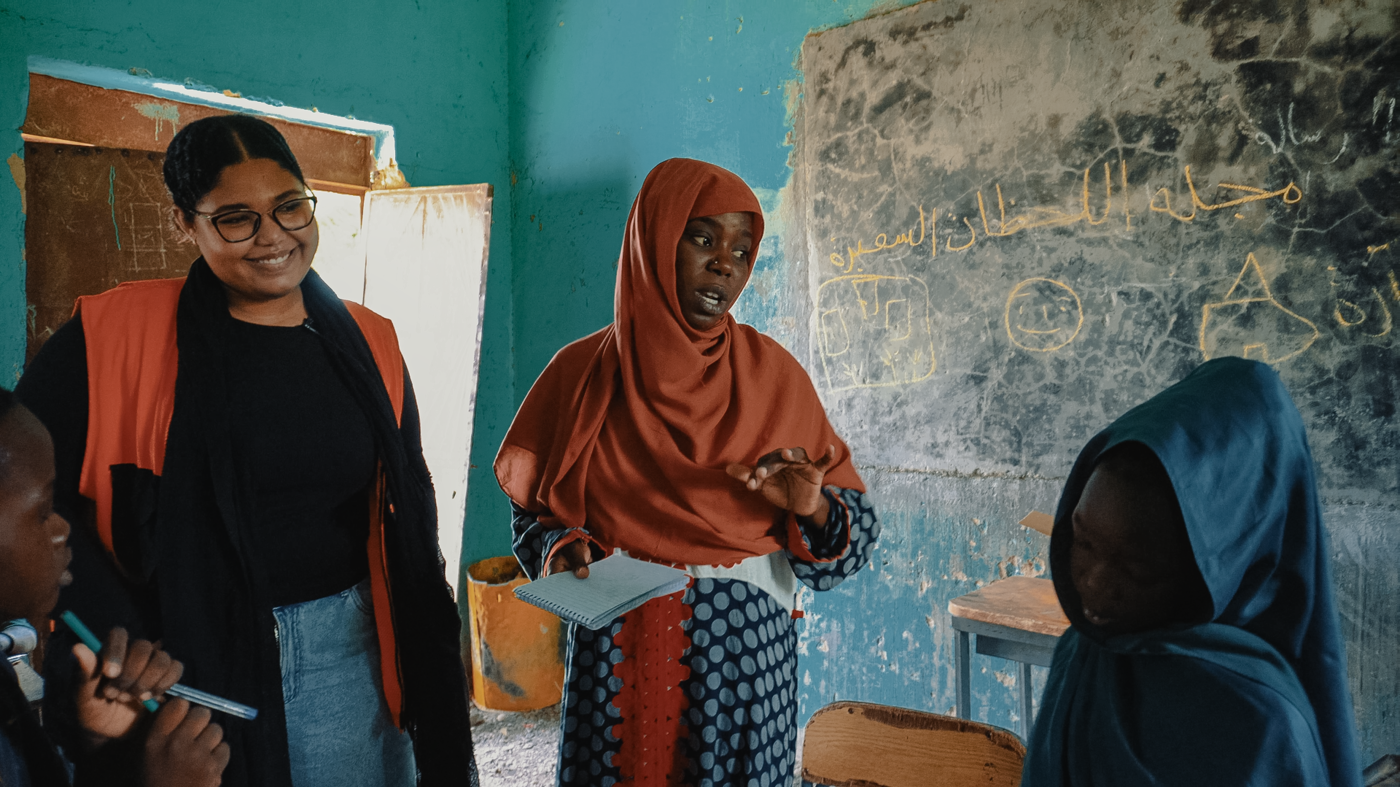
Women on the Frontline of Sudan’s Crisis Response
16 Days of Activism Blog Series
The ongoing conflict in Sudan, which erupted in April 2023, has wreaked havoc on the lives of millions. Clashes between the Sudanese Armed Forces (SAF) and the paramilitary Rapid Support Forces (RSF) have led to the largest displacement and hunger crisis in the world.
According to the U.N. Office for the Coordination of Humanitarian Affairs (OCHA), nearly 26 million people now require assistance, with approximately 10.9 million people displaced within Sudan and an additional 2.2 million refugees fleeing to neighboring countries. The U.N.’s humanitarian response plan is severely underfunded, with only 57% of the required funds raised to date, leaving millions without adequate shelter, food, water, or medical care.
The conflict has had a particularly devastating impact on women and girls, exacerbating existing inequalities and creating new vulnerabilities. According to a recent report by U.N. Women, over 2.5 million girls are unable to attend school. Additionally, nearly 5.8 million women and girls are internally displaced, facing limited access to clean water and protection from violence. Gender-based violence has increased by 100% since the conflict began, with women and girls particularly vulnerable to sexual violence, trafficking, and exploitation.
The traumas of increased sexual and conflict-related violence are exacerbated by survivors struggling to access necessary medical treatments due to limited services, stigma, and fear of reprisals. Recent reports of women dying by suicide to avoid capture and rape emphasize the horrifying environment Sudanese women are forced to endure.
Women Leading the Response
Before the crisis, Sudan already faced significant gender disparities with deeply entrenched barriers limiting women’s participation in public life. Although Sudanese women played a pivotal role in the 2018-2019 uprising that ousted former President Omar al-Bashir, they have been largely sidelined in subsequent peace processes and political negotiations. Yet Sudanese women have also been on the frontline of responding to the crisis.
A recent report found how Sudanese women are taking on new leadership roles in their families and communities. As male family members are either separated, killed, or targeted for recruitment by armed groups, women bear increasing responsibilities for protection, provision, and decision-making. And as violence and multiple displacements have devastated traditional support networks, displaced Sudanese women have played a critical role in forming new networks, delivering community services, and leading advocacy.
Women have played an active role in establishing Emergency Response Rooms around the country which deliver healthcare, nutrition, protection, and psychosocial support for women and children. The aforementioned report found numerous examples of Sudanese women leading new and diverse initiatives to meet the changing needs of displaced communities, such as creative educational activities for traumatized children and psychosocial activities and livelihood training for women.
However, women-led organizations continue to be targeted in violent attacks by armed groups. An attack on a healthcare clinic earlier this year in El Fasher by the RSF led to the injury and death of several SFPA staff and volunteers. The clinic was partially destroyed, reducing access to vital healthcare in the region at a time of growing need. This follows previous assaults on clinics in Khartoum and El Fasher in September 2023. These attacks come as women-led organizations are also under-resourced—they received only 1.6% of funding from the Sudan Humanitarian Fund in 2023.
On top of this, displaced women, despite demonstrating immense resilience in establishing community service projects, are often unable to meet their own basic needs—such as food, income, shelter, and sanitation—and are struggling to cope with their own psychological trauma.
Moving Forward
International donors must urgently increase funding toward women-led organizations, especially those supporting survivors of sexual violence and providing access to health, livelihoods, and psychosocial support. International actors must increase pressure on parties to the conflict to ensure the protection of women and girls from all forms of violence, secure justice and support for survivors, and safe and unrestricted access to humanitarian aid.
Women-led organizations are on the frontline of Sudan’s survival and will be the foundation upon which Sudan’s future is built. As the world continues to respond to Sudan’s crisis, it is critical to listen to the voices of Sudanese women, support women-led initiatives, and ensure that strategies are integrated into both humanitarian relief and long-term peacebuilding efforts.
Without such support, the ongoing conflict risks creating a “lost generation” of young women and girls, whose futures remain uncertain in the face of the overwhelming challenges posed by the war.
—
Note: The views expressed in this blog are the authors’ own and do not necessarily reflect those of InterAction.








